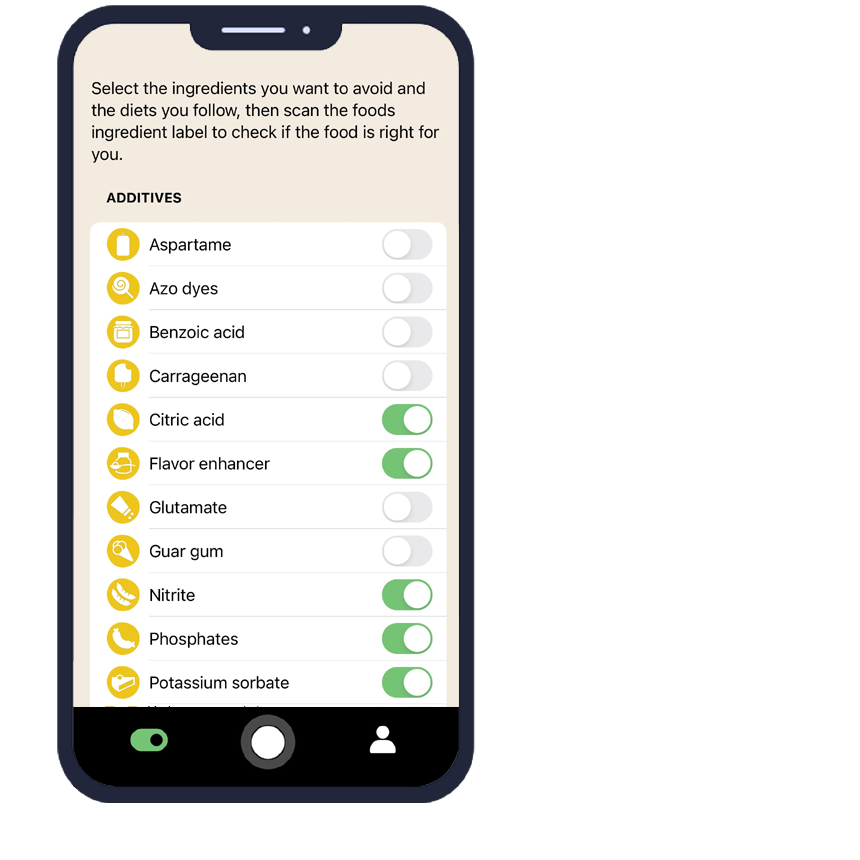Everything You Need to Know About Fenugreek and How AI Eat This Can Help
Fenugreek is a widely used ingredient found in countless food products around the world, from spice blends to processed foods. For consumers with specific dietary restrictions, allergies, or health concerns, identifying Fenugreek in ingredient lists can be challenging and time-consuming. The AI Eat This mobile app revolutionizes this process by instantly scanning ingredient lists in any language, helping users quickly identify and avoid Fenugreek when necessary.
Whether you're managing a Fenugreek allergy, following specific dietary restrictions, or simply want to make informed food choices, understanding this ingredient and having the right tools to identify it is essential for maintaining your health and peace of mind.
What Is Fenugreek and Where Is It Used?
Fenugreek (Trigonella foenum-graecum) is an herb belonging to the legume family, commonly used as both a spice and food additive. The seeds and leaves of this plant have been utilized for centuries in cooking, traditional medicine, and food manufacturing. In the food industry, Fenugreek appears in various forms, including ground seeds, extracts, and concentrated powders.
This versatile ingredient serves multiple purposes in food production, acting as a flavoring agent, natural preservative, and nutritional supplement. Fenugreek contains compounds that provide a distinctive maple-like aroma and slightly bitter taste, making it particularly valuable in spice blends and flavoring applications.
Common Foods Containing Fenugreek
Fenugreek can be found in numerous food products across different categories. Understanding where this ingredient commonly appears helps consumers make informed choices about their food purchases.
- Curry powders and spice blends
- Artificial maple flavoring and syrups
- Herbal teas and wellness beverages
- Dietary supplements and protein powders
- Processed meats and sausages
- Baked goods and flavored breads
- Ethnic foods, particularly Middle Eastern and Indian cuisines
- Some commercial salad dressings and marinades
Is Fenugreek Safe? What Does the Research Say?
Regulatory Approvals and Guidelines
Fenugreek has received approval from major health authorities worldwide for use in food products. The U.S. Food and Drug Administration (FDA) recognizes Fenugreek as Generally Recognized as Safe (GRAS) when used in normal food applications. Similarly, the European Food Safety Authority (EFSA) has evaluated Fenugreek and approved its use in food products within the European Union.
The World Health Organization (WHO) acknowledges Fenugreek's traditional use and safety profile when consumed in typical dietary amounts. These regulatory approvals indicate that Fenugreek poses minimal risk to the general population when used appropriately in food manufacturing.
Potential Risks for Specific Groups
While generally safe for most people, Fenugreek can pose risks for certain individuals. People with legume allergies may experience allergic reactions to Fenugreek, as it belongs to the same plant family as peanuts, soybeans, and other common allergens. Symptoms of Fenugreek intolerance can include digestive discomfort, skin reactions, or respiratory issues.
Pregnant women should exercise caution with Fenugreek consumption, as large amounts may stimulate uterine contractions. Additionally, individuals taking certain medications, particularly blood thinners or diabetes medications, should consult healthcare providers before consuming products containing significant amounts of Fenugreek.
How AI Eat This Helps You Avoid Fenugreek
The AI Eat This app transforms the way consumers identify food additives and allergens like Fenugreek. This innovative technology uses advanced image recognition to scan ingredient lists instantly, regardless of the language or format used on food packaging.
Users simply point their smartphone camera at any ingredient list, and the app immediately identifies whether Fenugreek is present. The app recognizes various names and forms of Fenugreek, including alternative spellings, scientific names, and regional variations that might appear on international products.
The personalized filter system allows users to set specific dietary restrictions, automatically flagging products containing Fenugreek or other unwanted ingredients. This feature is particularly valuable for people managing multiple food allergies or following complex dietary restrictions, as it eliminates the need to manually scan every ingredient list.
Who Should Avoid Fenugreek?
Several groups of people may need to avoid or limit their consumption of Fenugreek-containing products. Understanding these risk categories helps individuals make appropriate dietary decisions based on their health needs and medical conditions.
Individuals with diagnosed Fenugreek allergies must completely avoid this ingredient to prevent allergic reactions. Those with broader legume allergies should also exercise caution, as cross-reactivity between different legume family members can occur. People experiencing unexplained digestive issues or skin reactions after consuming spiced foods may benefit from temporarily eliminating Fenugreek to identify potential sensitivities.
Certain medical conditions may require Fenugreek avoidance or restriction. Diabetics using medication should monitor their blood sugar carefully when consuming Fenugreek, as it can affect glucose levels. People with bleeding disorders or those taking anticoagulant medications should also consult healthcare providers before consuming Fenugreek-containing products.
Tips for Maintaining a Fenugreek-Free Diet
Successfully avoiding Fenugreek requires strategic shopping habits and careful attention to food labels. Reading ingredient lists thoroughly is essential, as Fenugreek may appear under different names or be included in spice blends without specific identification.
When dining out, communicate your dietary restrictions clearly to restaurant staff, particularly at establishments serving Indian, Middle Eastern, or Mediterranean cuisine where Fenugreek is commonly used. Many restaurants can accommodate special dietary needs when given advance notice.
Focus on whole, unprocessed foods when possible, as these are less likely to contain unexpected additives or spice blends. Fresh fruits, vegetables, plain meats, and simple grains provide safer options for those avoiding Fenugreek.
Utilize technology like AI Eat This to streamline your shopping experience. The app's ability to quickly scan and identify ingredients saves time and provides confidence when making food choices, especially when shopping for unfamiliar products or brands.
The Future of Food Safety and Dietary Management
Technology continues to revolutionize how consumers manage their dietary restrictions and food safety concerns. Apps like AI Eat This represent the next generation of food safety tools, making it easier than ever to avoid specific ingredients like Fenugreek.
As food labeling regulations evolve and become more comprehensive, consumers benefit from having both regulatory protections and technological tools to support their dietary needs. The combination of improved labeling standards and advanced scanning technology creates a safer food environment for people with allergies and dietary restrictions.
Conclusion
Understanding Fenugreek and its presence in food products is crucial for consumers with allergies, intolerances, or specific dietary restrictions. While this ingredient is generally safe for most people, those who need to avoid it can face challenges in identifying its presence in processed foods and spice blends.
The AI Eat This app provides an invaluable solution for managing Fenugreek avoidance, offering instant ingredient identification and personalized filtering capabilities. By combining traditional label-reading skills with modern technology, consumers can confidently navigate the complex world of food additives and maintain their desired dietary restrictions.
Take control of your dietary health today by downloading AI Eat This for free testing and experience how technology can simplify your food choices while keeping you safe and informed!

70 filters
With over 70 filters, you can easily avoid certain ingredients and follow your dietary preference.

Paleo

Pescetarian

Ultra-processed food

Vegan







































































